
A supermarket is a self-service shop offering a wide variety of food, beverages and household products, organized into sections. This kind of store is larger and has a wider selection than earlier grocery stores, but is smaller and more limited in the range of merchandise than a hypermarket or big-box market. In everyday United States usage, however, "grocery store" is often used to mean "supermarket".
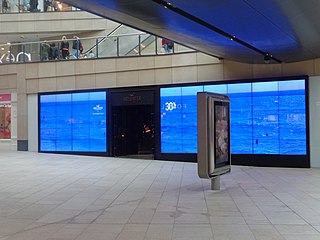
Sales are activities related to selling or the number of goods sold in a given targeted time period. The delivery of a service for a cost is also considered a sale. A period during which goods are sold for a reduced price may also be referred to as a "sale".
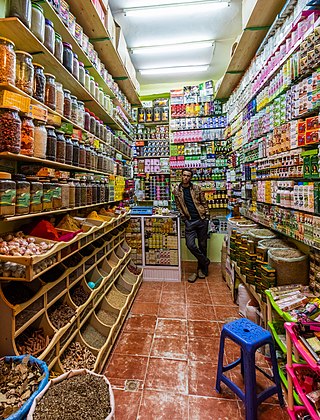
Retail is the sale of goods and services to consumers, in contrast to wholesaling, which is sale to business or institutional customers. A retailer purchases goods in large quantities from manufacturers, directly or through a wholesaler, and then sells in smaller quantities to consumers for a profit. Retailers are the final link in the supply chain from producers to consumers.
A journeyman is a worker, skilled in a given building trade or craft, who has successfully completed an official apprenticeship qualification. Journeymen are considered competent and authorized to work in that field as a fully qualified employee. They earn their license by education, supervised experience and examination. Although journeymen have completed a trade certificate and are allowed to work as employees, they may not yet work as self-employed master craftsmen.
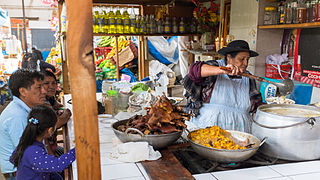
In sales, commerce, and economics, a customer is the recipient of a good, service, product, or an idea, obtained from a seller, vendor, or supplier via a financial transaction or an exchange for money or some other valuable consideration.

A tradesperson or tradesman/woman is a skilled worker that specialises in a particular trade. Tradesperson (tradesman/woman) usually gain their skills through work experience, on-the-job training, an apprenticeship program or formal education.

A craft or trade is a pastime or an occupation that requires particular skills and knowledge of skilled work. In a historical sense, particularly the Middle Ages and earlier, the term is usually applied to people occupied in small scale production of goods, or their maintenance, for example by tinkers. The traditional term craftsman is nowadays often replaced by artisan and by craftsperson.

Delivery is the process of transporting goods from a source location to a predefined destination. Cargo is primarily delivered via roads and railroads on land, shipping lanes on the sea, and airline networks in the air. Certain types of goods may be delivered via specialized networks, such as pipelines for liquid goods, power grids for electrical power and computer networks such as the Internet or broadcast networks for electronic information. Car transport is a particular subgroup; a related variant is Autorack, which involves the transport of autos by railroads.
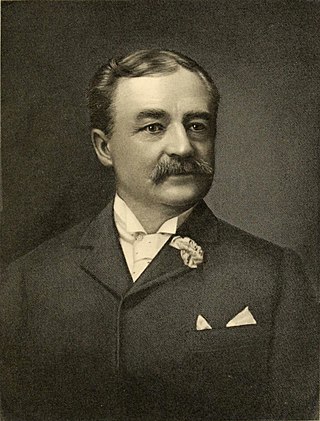
Aaron Montgomery Ward was an American entrepreneur based in Chicago who made his fortune through the use of mail order for retail sales of general merchandise to rural customers. In 1872 he founded Montgomery Ward & Company, which became nationally known.

Personal selling occurs when a sales representative meets with a potential client for the purpose of transacting a sale. Many sales representatives rely on a sequential sales process that typically includes nine steps. Some sales representatives develop scripts for all or part of the sales process. The sales process can be used in face-to-face encounters and in telemarketing.

A peddler, in British English pedlar, also known as a chapman, packman, cheapjack, hawker, higler, huckster, (coster)monger, colporteur or solicitor, is a door-to-door and/or travelling vendor of goods. In 19th-century America the word "drummer" was often used to refer to a peddler or traveling salesman; as exemplified in the popular play Sam'l of Posen; or, The Commercial Drummer by George H. Jessop.
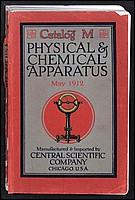
Mail order is the buying of goods or services by mail delivery. The buyer places an order for the desired products with the merchant through some remote methods such as:
Door to Door is a 2002 American biographical drama television film about Bill Porter, an inspiring and successful door-to-door salesman with cerebral palsy. The film stars William H. Macy, who plays Porter, and also features Helen Mirren, Kyra Sedgwick, Michael Shanks, and Kathy Baker. Door to Door, directed by Steven Schachter, was produced for the TNT cable network. The script was co-written by Macy, and Forest Whitaker served as an executive producer. It was the first film made under the J&J Spotlight series banner, a partnership between TNT and Johnson & Johnson. The film premiered on TNT on July 14, 2002.
A marketing channel consists of the people, organizations, and activities necessary to transfer the ownership of goods from the point of production to the point of consumption. It is the way products get to the end-user, the consumer; and is also known as a distribution channel. A marketing channel is a useful tool for management, and is crucial to creating an effective and well-planned marketing strategy.
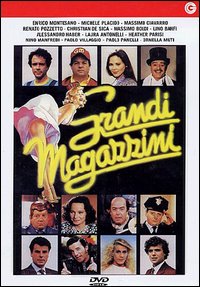
Grandi magazzini is a 1986 Italian anthology comedy film directed by Castellano & Pipolo.
Postmates Inc. is a food delivery service, founded in 2011, and acquired by Uber in 2020. It offers local delivery of restaurant-prepared meals and other goods. It is headquartered in San Francisco, California.
Uber Eats is an online food ordering and delivery platform launched by the company Uber in 2014. The meals are delivered by couriers using various methods, including cars, scooters, bikes, or on foot. It is operational in over 6,000 cities in 45 countries as of 2021.

Wolt Enterprises Oy, trading as Wolt, is a Finnish food delivery company known for its delivery platform for food and merchandise. On Wolt's apps or website, customers can order food and household goods from the platform's restaurant and merchant partners, and either pick up their order or have it delivered by the platform's courier partners. Wolt also runs its own chain of grocery stores called Wolt Market. Wolt is headquartered in Helsinki.
The retail format influences the consumer's store choice and addresses the consumer's expectations. At its most basic level, a retail format is a simple marketplace, that is; a location where goods and services are exchanged. In some parts of the world, the retail sector is still dominated by small family-run stores, but large retail chains are increasingly dominating the sector, because they can exert considerable buying power and pass on the savings in the form of lower prices. Many of these large retail chains also produce their own private labels which compete alongside manufacturer brands. Considerable consolidation of retail stores has changed the retail landscape, transferring power away from wholesalers and into the hands of the large retail chains.











